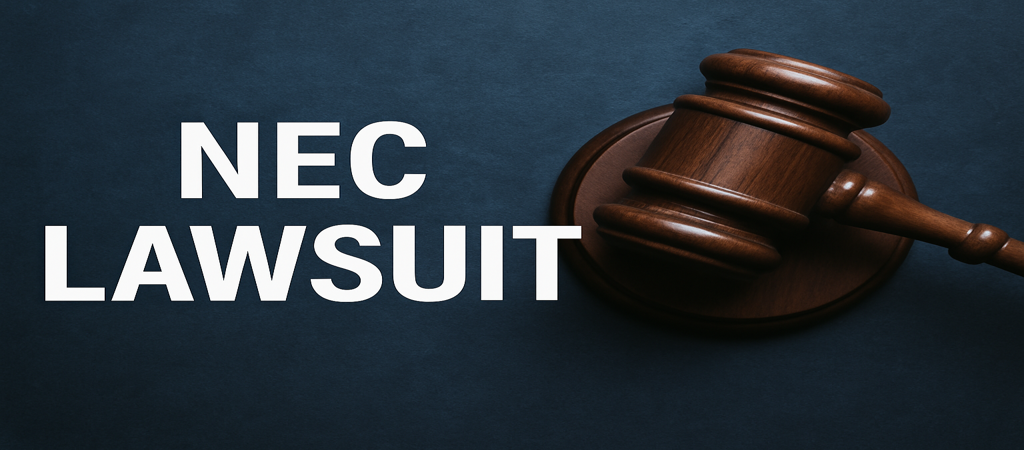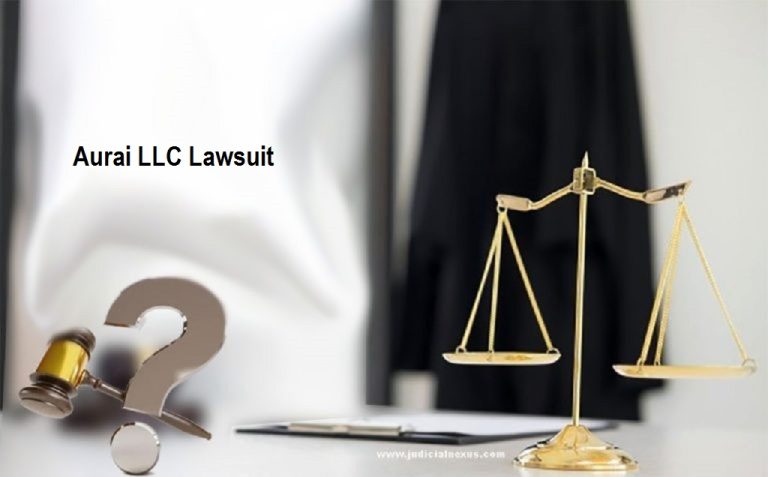The NEC lawsuit has captured national attention. Parents accuse major formula makers of hiding deadly risks. They argue that these companies placed profits over infant safety. NEC stands for necrotizing enterocolitis. It is a life-threatening intestinal disease that mainly affects premature babies. Families believe cow ’s-milk-based formulas, including Similac and Enfamil, increase the risk dramatically.
Lawyers across the United States now represent hundreds of grieving parents. They want justice for babies who suffered or died. Many believe the NEC lawsuit is not only about money. It is about accountability, transparency, and safety in infant nutrition.
The NEC lawsuit also forces hospitals and doctors to reconsider feeding practices. Parents trust medical advice, but they also expect truth from manufacturers. This case blends science, law, and ethics. Each new trial or ruling changes the path forward. The 2025 NEC lawsuit is one of the most significant consumer battles of today.
What is NEC?
NEC is a severe intestinal condition. It mostly strikes premature babies. The disease causes inflammation that can kill intestinal tissue. In some cases, surgeons must remove damaged sections. Survival rates remain uncertain.
Doctors still study the exact causes. Immature digestive systems are more fragile. Studies show cow’s-milk formulas increase the danger. Parents often describe NEC as sudden and shocking. Babies can decline within hours.
Origins of the NEC Lawsuit
The NEC lawsuit began after studies revealed clear risks. Researchers found formula feeding raised NEC chances for preemies. Parents discovered these findings were not highlighted on formula labels. Lawyers soon filed the first cases in Illinois. Families demanded accountability from Abbott and Mead Johnson. Public anger grew after stories appeared in the national media. Collective lawsuits gave parents stronger voices.
Companies Facing the NEC Lawsuit
Abbott Laboratories makes Similac. Mead Johnson makes Enfamil. These two brands dominate hospital formula use. Hospitals often receive contracts and incentives from these companies. Parents assume safety when hospitals provide these products. Lawsuits argue that corporate marketing overshadowed scientific warnings. Families believe trust was broken at the highest level.
The Legal Claims in the NEC Lawsuit
Parents accuse the companies of negligence. They say warnings about NEC risk were absent. Marketing suggested safety for fragile babies. The lawsuits also allege misrepresentation. Parents claim ads created false confidence in product safety. Families describe this as reckless behavior. Compensation demands include medical costs, emotional damages, and punitive measures.
The Defense Position in the NEC Lawsuit
Formula companies deny responsibility. They argue NEC can occur without formula. They say no direct causation exists. Lawyers for Abbott and Mead Johnson highlight FDA oversight. They stress compliance with regulations. They also emphasize decades of hospital use. Their defense frames the lawsuit as unfair blame.
Major Verdicts and Settlements
In 2024, juries shocked the industry. An Illinois jury awarded $60 million against Mead Johnson. A Missouri jury ordered Abbott to pay $495 million. Parents celebrated these wins. Defendants warned about appeals. A defense victory later collapsed after an appeal. A retrial was ordered, creating fresh uncertainty. Verdicts proved unpredictable and raised settlement pressures.
The Federal MDL in Chicago
Federal cases were consolidated into MDL No. 3026. Chief Judge Rebecca Pallmeyer leads the litigation. The MDL now contains over 740 cases. Bellwether trials aim to test arguments. In May 2025, the first case was dismissed. In July 2025, another collapsed after expert testimony was excluded. Plaintiffs now face an uphill battle in federal court.
The State Court Battles
State courts tell a different story. Thousands of cases sit in Illinois and Pennsylvania. Madison County has become central. In June 2025, an appellate court ruled cases could remain there. Plaintiffs celebrated. Defendants saw risk grow. State courts appear more favorable to parents.
Parents’ Voices in the NEC Lawsuit
Parents describe heartbreak in vivid detail. They speak of fragile babies who declined quickly. Many describe feelings of betrayal. Families say warnings never came. They trusted brands promoted in hospitals. Now they fight to hold companies accountable. Their testimonies shape juries and public opinion.
Expert Testimony and Science
Expert witnesses play key roles. Studies link cow’s-milk formulas to NEC. Plaintiffs say science proves responsibility. Defense experts argue NEC is unpredictable. They insist formula is not the sole factor. Judges decide which experts juries can hear. In July 2025, key plaintiff experts were excluded in federal court. That ruling weakened the plaintiffs’ position.
Why the NEC Lawsuit Matters for Consumers
The NEC lawsuit impacts every parent. It highlights risks hidden in plain sight. Consumers now question marketing claims. Hospitals may shift feeding protocols. Human milk banks may expand. Regulatory agencies may demand stronger warnings. The case forces industry change that goes beyond courtrooms. The Future of the NEC Lawsuit
The path forward remains unclear. Federal dismissals help defendants. Yet state courts keep pressure alive. Upcoming bellwethers in late 2025 and early 2026 may decide settlement value. If parents win, companies may seek resolution. If companies win, parents may face setbacks. The NEC lawsuit future remains uncertain.
How Families Can Seek Justice
Parents still have legal options. Lawyers encourage them to act quickly. States have deadlines for filing. Law firms offer free case reviews. Families can gather records and join lawsuits. Many parents believe this is their only chance at accountability.
NEC Lawsuit in the Media and Public Opinion
The NEC lawsuit receives wide coverage. National outlets share heartbreaking stories. Advocacy groups amplify awareness. Public opinion increasingly favors families. Formula brands face criticism. Trust has been eroded. Pressure mounts for transparency.
Broader Industry Impact Beyond NEC
The NEC lawsuit extends beyond families. Regulators may impose stronger rules. Hospitals may reduce reliance on formula companies. Consumer choices may shift toward donor milk. Formula makers face financial losses and reputational harm. Industry practices may never look the same again.
Timeline of the NEC Lawsuit
The NEC lawsuit timeline shows dramatic turns. Early claims began in 2021. Large verdicts appeared in 2024. In 2025, federal courts dismissed bellwethers. Yet state courts kept momentum alive. New bellwethers are scheduled for November 2025 and February 2026. Each milestone changes the balance of power.
FAQs
1. What is the NEC lawsuit about?
The NEC lawsuit alleges that cow’s-milk-based formulas, including Similac and Enfamil, increase NEC risk in premature babies. Parents claim manufacturers failed to warn about dangers.
2. Which companies face the NEC lawsuit?
Abbott Laboratories, the maker of Similac, and Mead Johnson, the maker of Enfamil, are the main defendants in the NEC lawsuit.
3. What verdicts have been reached in the NEC lawsuit?
Juries have awarded massive verdicts, including $60 million against Mead Johnson and $495 million against Abbott, though some federal cases have been dismissed.
4. Where are NEC lawsuits being tried?
Cases are underway in federal court under MDL No. 3026 in Chicago and in state courts, including Illinois and Pennsylvania.
5. How can parents join the NEC lawsuit?
Parents can consult lawyers handling NEC cases. Most firms offer free reviews to determine eligibility and guide families through filing claims.
Conclusion: NEC Lawsuit in 2025
The NEC lawsuit represents more than legal action. It reflects parents’ fight for truth. Families accuse formula giants of failing to protect fragile infants. They demand responsibility for harm caused. Defendants push back, denying any direct link. They stress compliance and hospital use. Courts deliver mixed outcomes, from huge verdicts to sharp dismissals. This dual track keeps both sides on edge.
This lawsuit forces global conversations about neonatal care. Parents worldwide now question infant nutrition. Regulators may reshape rules. Hospitals may adapt feeding practices. Trust in formula brands may take years to rebuild. In 2025, the NEC lawsuit remains one of the most important battles for consumer safety. It stands as both warning and lesson. Parents seek justice. Companies defend reputations. The final outcome will shape infant care for generations.




